Site search is a hugely important aspect of an e-commerce business’s success. Optimized search means a customer’s ability to find, choose and buy the correct product, which has many implications on sales, revenue growth, and potential.
Here at Luigi’s Box, we don’t just love search but live it! We’ve dived deep into the Search Insights 2019 report, so you don’t have to. Sit back, relax, and get briefed on the best in current search news tailored to you.
How users perceive search
There are various important factors in search, but not all are created (or perceived) equal by the users. Among these factors are technology (with sub-factors of reliability, ranking, and usability), information (refers to the quality and trustworthiness of a result’s classification, i.e., if a pair of shoes is classified under “clothing” or “footwear”), and literacy.
Literacy highlights the fact that search cannot be intuitive to every user. Often, the people behind a search function assume that users will just use a single-word query and then employ filters to find the most relevant results. Unfortunately, many users find this time-consuming and sometimes frustrating without good UX. Whenever customization (for example, through filters) is possible, it tends to be very helpful.
Search function literacy also relates to e-commerce businesses that operate internationally and with a range of language speakers. In this case, local language support becomes crucial. Non-native English speakers attempting to search in English will come up with various obscure and confusing phrases that will likely not find the most relevant results. To top it off, these queries will make your search data harder to analyze and improve!
Take it from a search manager
Karen Renshaw, a search manager with 10+ years of experience and currently Head of Search and Content for UK-based Grainger Global Online, explains why “search is not a one-off activity.” Because every e-commerce business is individual, each requires search maintenance tailored to the site’s unique needs. The goal is always optimization, but optimization is not a fixed state, which is why Renshaw says that “making search work for your organization requires ongoing iterative review and changes.”
How do you ensure ongoing search optimization for the long term? Here are three guidelines in Renshaw’s words:
- Understand your customers and how they search. A good analysis of your search data will help you create a customer-driven relevancy strategy (more on that below). Also, here’s what your data can teach you about buyer intent.
- Understand how well your search queries are performing today. Improvements require change. A good rule of thumb is to create benchmark query sets so you can measure the impact of each adjustment.
- Test, test, test, then test some more. It’s a great way to see what works and what doesn’t so you can reach the optimal result, and the results are often surprising! We’ve recently written an article about a new option called Offline Synthetic Testing.
Even when a search is well-implemented, there will be changes over time in the site content, product listing, and how customers search. Whenever any of these variables changes, the results customers see will necessarily change. For this reason, it’s necessary to constantly review how search queries perform and explore how you might be able to improve them. Here are Renshaw’s top suggestions:
- Review and enhance top search queries. Even small changes in your top-ranked products can “drive incremental conversion uplifts” that make a big difference. Consider adding a synonym or content update to these queries and monitor the results.
- Invest time in improving long-tail queries. You know your business best–this requires intensive tailoring to content and customer behavior. Here’s an LB guide to ensure that long-tail search is set up to meet your customers’ needs.
Have you ever heard of relevance engineering?
As you know, a good search function can translate a query into relevant and thus well-ranked results–otherwise, it means nothing for an e-commerce business.
You may be familiar with what a “search engineer” does, namely concern themselves with search performance, application development, and sometimes relevance. However, the role of “relevance engineer” (developed by Charlie Hull at Flax) provides a deeper specialization on whether a search system can answer users’ questions effectively.
Some questions a relevant engineer asks are, “How can one measure what the user means when they type in a specific search engine query?” and “Was the user satisfied with their result?”
Pro Tip: You could invest in a search and relevance engineer, or you could check out our app! Yes, Luigi’s Box was featured in the Search Insights report:
“The community is also stepping up to fill the relevance engineering gap with tools and techniques. Luigi’s Box, a winner of the Best Startup category at the British Computer Society’s annual Search Solutions Awards, provides a powerful online dashboard for search queries.”
The report recommends investing in search as a service because you enjoy significant infrastructure features at an affordable price with the additional benefits of rapid deployment, low maintenance, good site reporting, and operational support for server management.
If you take away one thing from this…
Let it be the importance of relevance. This new buzzword in the world of search, and category of search specialization, has been developing for a good reason: It’s the wrong word choice to say that e-commerce site shoppers want good or even great results; they want relevant results to what they’ve searched.
This shouldn’t exclude non-native English speakers. Although English is a major international language, if a large percentage of your site users are from countries where this is a second or third language, you may want to strongly consider how you can add or enhance search in their mother tongue to improve customer satisfaction and sales.
Optimizing your site search to display the most relevant results is not a one-off process. Still, it will require continuous monitoring and improvement, especially as you add new products, categories, and more. The process includes continual small changes, testing, and refinements (and then, to channel Renshaw, more testing again!).
Gejza is a CEO and Co-Founder of Luigi's Box. He has been working on user experience and conversion rate optimization in e-commerce for over a decade. His primary focus is the company's management, strategy, finance, and helping their biggest clients to get the most out of search and product recommendations.
More blog posts from this author




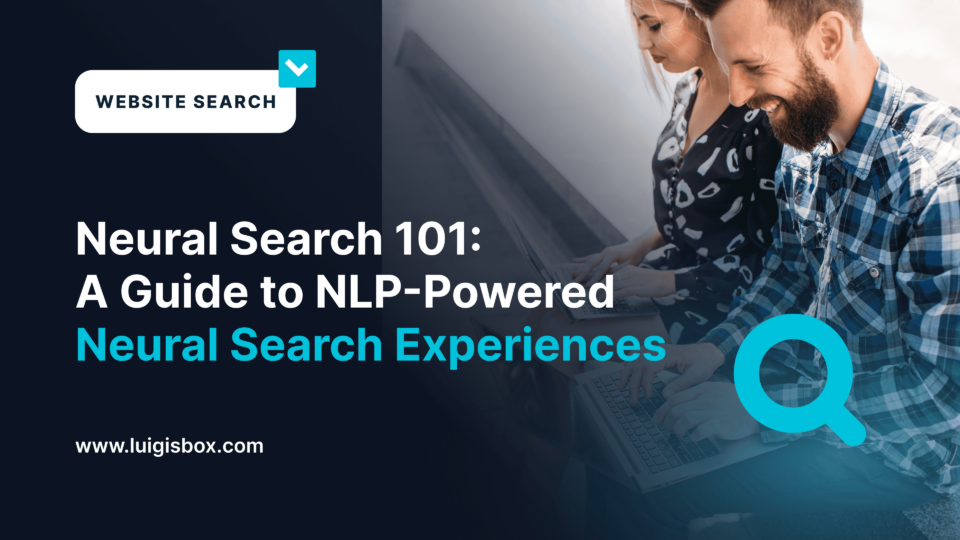





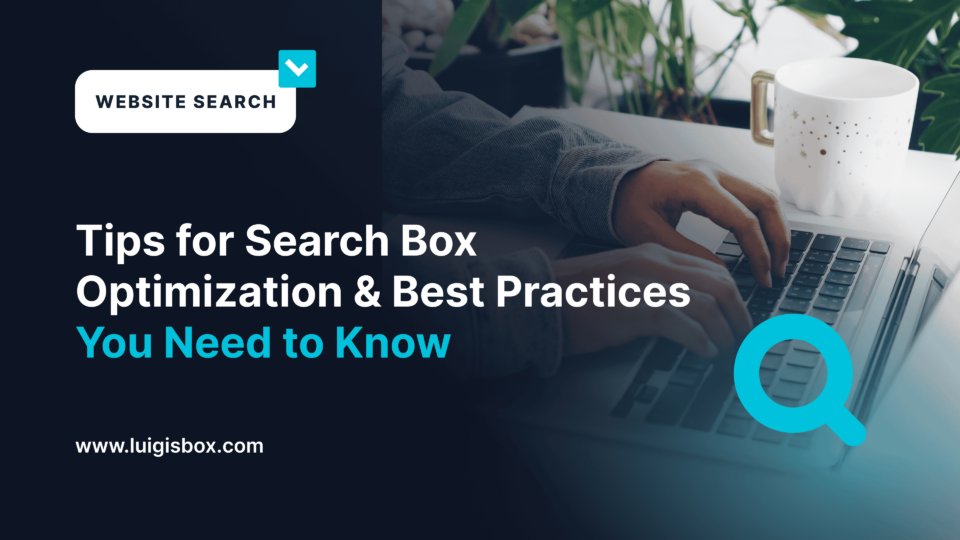



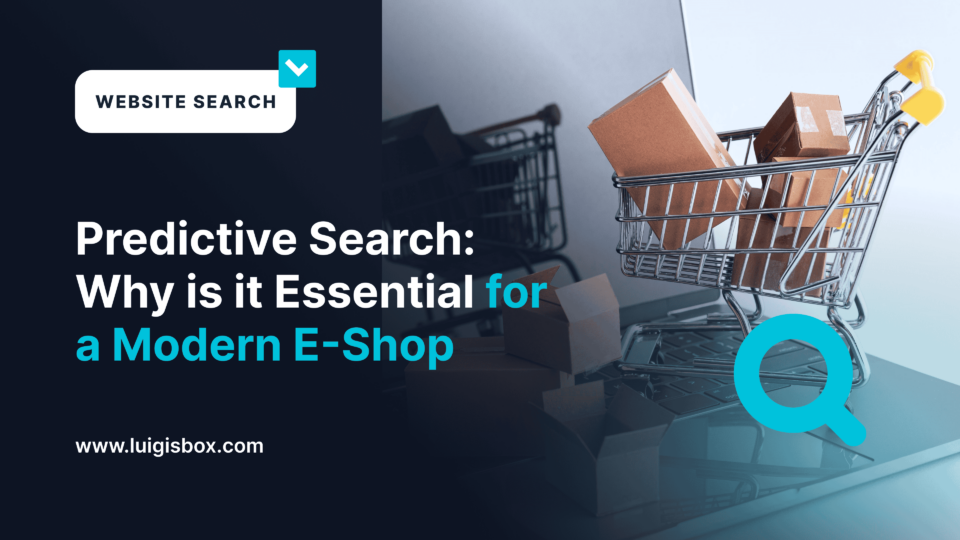



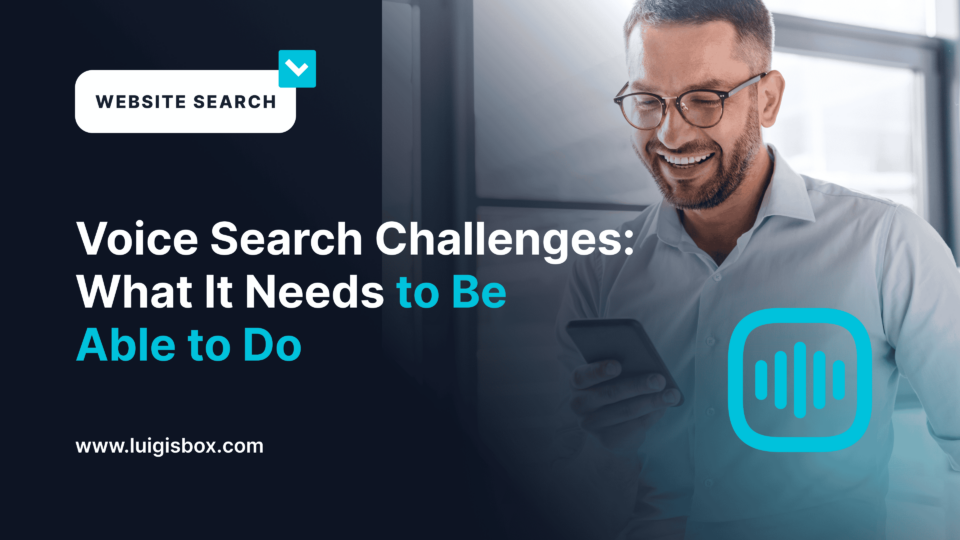







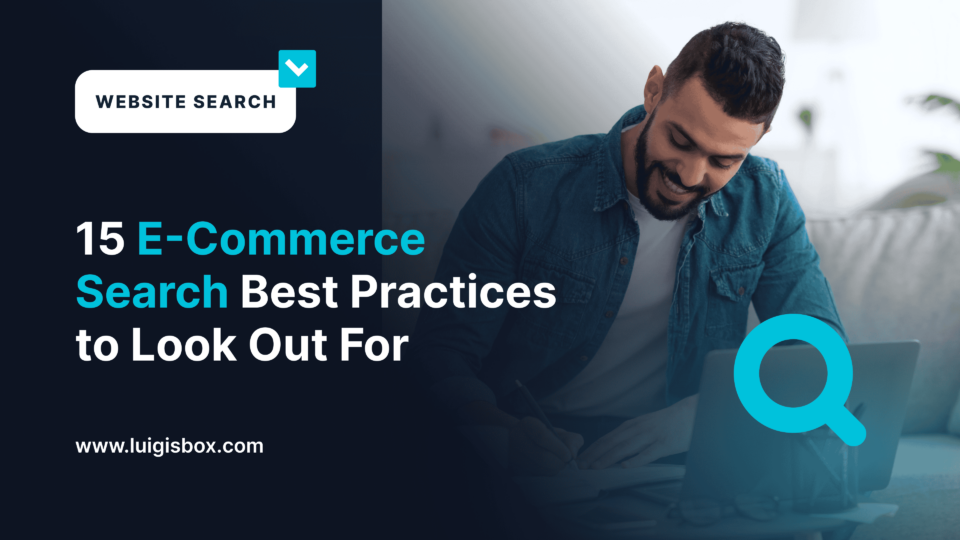
![E-Commerce Website Development Steps in 2024 [Checklist]](https://www.luigisbox.com/app/uploads/2024/04/E-Commerce-Website-Development-Steps-in-2024-960x540.png)
![[Explained] Trendings](https://www.luigisbox.com/app/uploads/2024/04/Explained-Trendings-960x540.png)
![[Explained] Custom Keywords](https://www.luigisbox.com/app/uploads/2024/04/Explained-Custom-Keywords-960x540.png)
![[Explained] Synonyms and Synonym Recommendations](https://www.luigisbox.com/app/uploads/2024/04/Explained-Synonyms-and-Synonym-Recommendations-960x540.png)
![[Explained] Boosted Items and Boosted Terms](https://www.luigisbox.com/app/uploads/2024/04/Explained-Boosted-Items-and-Boosted-Terms-960x540.png)






